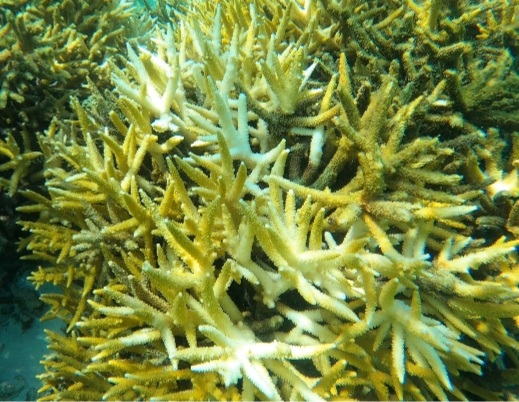Life finds a way on Buccoo Reef

Endlessly exploited and damaged, the Buccoo Reef ecosystem is a remarkable national resource that is demonstrating resilience even in the face of climate change. Shivonne Peters-McPherson writes about the life on Buccoo Reef and our need to treasure what remains and what is coming back. Buccoo Reef is not dead! They say that the only thing that remains of this once thriving ecosystem is an extensive seagrass community. That’s not true. While many may remember the Buccoo Reef circa the 1980s and 1990’s, a time when areas such as Coral Gardens were vibrant and full of pristine corals and an abundance of reef fish, life on the Reef changes and is persistent. There is no doubt that Buccoo Reef has been heavily degraded. Scientific studies show a decline in coral cover, especially at shallower depths. There is an overgrowth of macroalgae, which often smothers corals and results in coral mortality. The average person who visited the reef decades ago will i...





